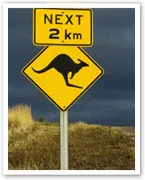Is there anything better than the smell of freshly baked cinnamon buns straight from the oven?
Or garlic and onion sizzling away in a pan?

No, is the answer to that.
Our sense of smell directly correlates to our appreciation of food.
Smelling your food can help you to eat mindfully and savour every morsel. It makes the whole experience of eating more enjoyable, hell, it makes life more enjoyable.
But it turns out that smelling your food could be sabotaging your weight loss goals.
Sorry.

A study from the University of California, Berkeley, investigated olfactory senses and weight loss in mice, finding that obese mice who lost their sense of smell also lost more weight than their control counterparts.
All the mice were fed a high-fat diet, and those who retained their sense of smell grew to twice their normal size.
Stranger still, mice who were given a temporary boosted sense of smell gained twice the amount of weight again .
The findings suggest how our food smells could play a role in how the body deals with calories.
The thinking at this stage is if you can’t smell your food, you may burn it rather than storing it.
Andrew Dillin, a senior author on the study explained,
“Sensory systems play a role in metabolism. Weight gain isn’t purely a measure of the calories taken in; it’s also related to how those calories are perceived. If we can validate this in humans, perhaps we can actually make a drug that doesn’t interfere with smell but still blocks that metabolic circuitry. That would be amazing.”
Dillin also says removing the sense of smell from humans for weight loss is a drastic move, though could be used in future for morbidly obese considering more invasive forms of weight loss surgery such as stomach stapling.
“For that small group of people, you could wipe out their smell for maybe six months and then let the olfactory neurons grow back, after they’ve got their metabolic program rewired,” Dillin told Science Daily.
How to lose those last 5kgs

If you’re struggling to lose that last 5Kgs, we have a few expert tips for you.
Exercise outside of your comfort zone
Whether you run, cycle, swim, box or lift weights, it’s time to take things to the next level. “You’ve got to push the body and increase some of the variables to ensure you’re working harder than you were previously,” advises Andrew Meade, co-founder of Melbourne’s Urban Workout gym.
This means not only ramping up the intensity, frequency and duration of your exercise but also mixing up your modalities to ‘shock’ your body into shape. “Challenge your muscle memory,” says Meade. “Switch from swimming to cycling, yoga to weights, gym workouts to running in the park.”
Go back to square one
Clare Collins, a professor in nutrition and dietetics at the University of Newcastle, says that people who plateau may be suffering from what she calls ‘portion creep’ – you have subconsciously drifted off your diet plan and increased your kilojoule intake. “That third of a cup of rolled oats is now half a cup, or that 80g of meat is now 120g,” she says.
To get back on track, Collins suggests starting from scratch. “Spend four days weighing and measuring your food to see if you’ve been keeping your kilojoule count intact,” she says. “If you are, then it could be your body saying it doesn’t want to lose that last 5kg.”
Zoe Bingley-Pullin, nutritionist and founder of Nutritional Edge, has another suggestion: next time you serve yourself dinner on your usual sized plate, remove a third of it and put it in a container for a mid-afternoon snack the next day.
Keep an eye on what you’re drinking aswell. Because you’ve been doing so well up to now, you might think it’s okay to start sneaking in an extra glass of wine, beer or soda. Don’t. And no powdered meal-replacement shakes or sports drinks, either! Bingley-Pullin suggests sticking to simple liquids, such as water, herbal teas and coffee, but no more than two coffees a day.
Try interval training
This as an excellent way to achieve workout after-burn, Meade says, where your body continues to burn kilojoules at a higher than normal level.
During a 15-minute run, for instance, do two minutes of steady jogging followed by one minute of fast running and repeat five times. “As you progress, switch it round so you do the high intensity for longer,” he suggests.



